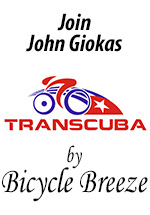October 20/17 12:22 pm - WADA Publishes 2018 Prohibited List
Posted by Editor on 10/20/17
The Canadian Centre for Ethics in Sport (CCES) would like to alert the Canadian sport community that the World Anti-Doping Agency (WADA) has published the 2018 Prohibited List. The List will come into effect on January 1, 2018.
The 2018 Prohibited List and the Summary of Major Modifications and Explanatory Notes are now available for download on WADA's website in English and French.
Notable modifications to the List include:
• Dosing parameters of salbutamol were revised to make it clear that divided doses of salbutamol may not exceed 800 micrograms over any 12 hours. The daily maximum of inhaled salbutamol remains 1600 mcg over 24 hours.
• Previously included in category S8 Cannabinoids, cannabidiol is no longer prohibited. It should be noted that synthetic cannabidiol is not a cannabimimetic; however, cannabidiol extracted from cannabis plants may also contain varying concentrations of THC, which remains prohibited. Cannabidiol is used by athletes to manage conditions such as pain and inflammation. This change does not impact the status of cannabis - it remains a prohibited substance.
• In category M2.2 Chemical and Physical Manipulation, the permitted volume and timing of intravenous infusions were changed from infusions of no more than 50 mL per six-hour period to no more than a total of 100 mL per 12-hour period. Treatment scenarios have been updated to reflect medical practice; "hospital admissions" has been changed to "hospital treatments" and "clinical investigations" has been changed to "clinical diagnostic investigations."
• In an effort to improve clarity, examples of commonly used glucocorticoids were added to category S9 Glucocorticoids.
• Alcohol was excluded from the Prohibited List; however, control of its use will be transferred to the four International Federations (IF) that are affected by the change. As a result of category P1's (alcohol) removal from the List, Beta Blockers (formerly P2) has been renamed P1 Beta Blockers.
• Glycerol has been removed from the List in light of scientific articles that have confirmed that glycerol's ability to influence plasma volume and parameters of the Athlete Biological Passport (ABP) is minimal.
Two substances were added to the Monitoring Program in order to evaluate whether they are misused in sport: 2-ethylsulfanyl-1H-benzimidazole (bemitil) in and out of competition and hydrocodone incompetition. Mitragynine and telmisartan are no longer included in the Monitoring Program.
The List is an international standard identifying substances and methods prohibited in sport. It was first published in 1963 by the International Olympic Committee. Since 2004, WADA has been responsible for the preparation and publication of the List, which it updates every year.
Athletes can find out if their medications are prohibited using the following CCES resources, all of which will be updated on January 1, 2018, to reflect the new List.
• Global DRO: www.globaldro.com
• Email: substances@cces.ca
• Info Line: 1-800-672-7775
Athletes can apply for a medical exemption if they are prescribed a prohibited medication for the treatment of an illness or condition. The CCES Medical Exemption Wizard (www.cces.ca/medical-exemptions) can help athletes find out if they need to apply for an exemption, what to include in the application, and where to submit it.
| Return to Canadian Cyclist homepage | Back to Top |





